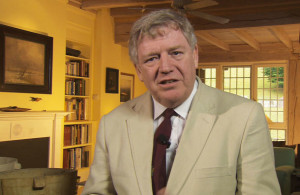Koenraad Elst
Oppenheimer, Stephen
Stephen Oppenheimer (1947- ) qualified in Medicine from Oxford University in 1971. He moved to the Orient where he specialised in tropical paediatrics. He was Professor of Paediatrics at the Chinese University of Hong Kong from 1990 to 1994. Much  of his research focused on malaria and the unique genetic mutations that protect against it. Since these mutations act as markers Oppenheimer found that they held strong evidence for the migrations caused by the extensive flooding following the last Ice Age. This led him to investigate the cultural origins of the peoples of South East Asia.
of his research focused on malaria and the unique genetic mutations that protect against it. Since these mutations act as markers Oppenheimer found that they held strong evidence for the migrations caused by the extensive flooding following the last Ice Age. This led him to investigate the cultural origins of the peoples of South East Asia.
Oppenheimer wrote a book[004], which identified the South China Sea as the original location of the Garden of Eden. Although he makes little reference to Atlantis, the book is of great interest to those that favour an oriental rather than a western location as the inspiration for Plato’s legendary land.
R. Cedric Leonard has drawn attention to an article by Oppenheimer in a 2006 edition of Prospect magazine(d) with a follow-up contribution in the June 2007 edition(e). In them, he proposes that the early immigrants into the British Isles were more likely to have been Basques rather than Celts. Leonard speculates(f) that the Bretons (Britons) were Basques, who in turn were Atlantean refugees!
A critical review of Oppenheimer’s volume by Koenraad Elst(c), the Belgian orientalist, as well as the more recent supportive views of Dale Drinnon can be found on the Internet(a).
Oppenheimer has also written a further book[005] that looks at the origins of modern mankind in Africa and its spread throughout the rest of the world.
In February 2012 it was reported(b) that the president of Indonesia was encouraging a search for an ancient civilisation in Indonesian waters. This apparently followed meetings with local researchers and Stephen Oppenheimer. President Yudhoyono has also given his support to the extensive research being carried out at Gunung Padang(g).
Oppenheimer in conjunction with the Bradshaw Foundation(h) has produced a valuable interactive genetic map showing how the world was peopled(i).
In 2014, Oppenheimer endorsed(j) the conclusions of Stanford and Bradley who propose that the Clovis people were related to the Solutrean people of western Europe who had crossed the Atlantic during the last Ice Age.
See also Sundaland.
(a) See Archive 3581
(b) See Archive 2976
(c) https://web.archive.org/web/20190311153957/https://koenraadelst.bharatvani.org/reviews/atlantis.html*
(d) https://www.prospectmagazine.co.uk/magazine/mythsofbritishancestry/
(e) https://www.prospectmagazine.co.uk/magazine/mythsofbritishancestryrevisited/
(f) https://web.archive.org/web/20170113172907/https://www.atlantisquest.com/Bretons.html
(h) Bradshaw Foundation (archive.org) *
(i) Bradshaw Foundation – Journey of Humankind (archive.org) *
(j) https://www.tandfonline.com/doi/abs/10.1080/00438243.2014.966273?journalCode=rwar20
Also see: Sundaland
